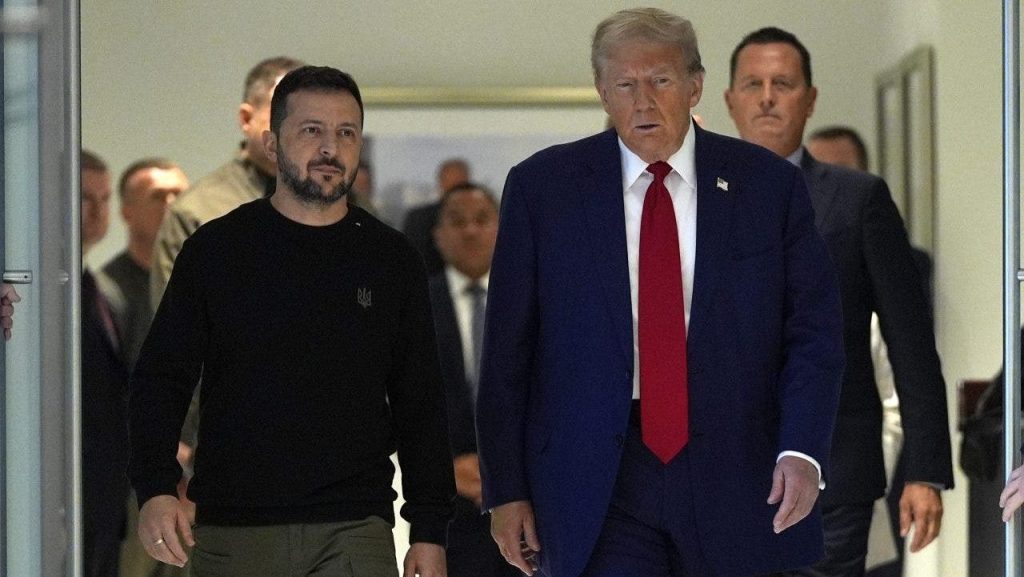The recent re-election of Donald Trump as president of the United States has raised concerns in the international community, especially as Russia’s war in Ukraine continues. Trump and Vice President-elect JD Vance have expressed their support for ending the war in Ukraine, but there is uncertainty on how they plan to achieve this. Vance’s suggestion of Ukraine ceding land to Russia and establishing a demilitarized zone has been rejected by Ukrainian President Zelenskyy. There are reports that Trump’s advisers are pushing for similar proposals, including creating a demilitarized zone and freezing the frontlines, in exchange for Russia keeping seized territory.
There have been reports that Trump had a conversation with Russian President Putin where he urged him not to escalate the war. Critics of the proposed plan to end the war fear that it may embolden Russia and undermine Ukraine’s security and NATO ambitions. Former CIA Moscow station chief Dan Hoffman believes that Ukraine should not be treated as the aggressor in the conflict and that the focus should be on inducing Putin to come to the negotiating table. The U.S.’s leverage in the situation lies in providing Ukraine with sophisticated weaponry and allowing them to use it against Russian targets.
Former U.S. special envoy to Ukraine, Kurt Volker, believes that Trump will pressure Putin to end the war by providing Ukraine with support and resources. However, there are concerns that Trump’s ambiguous stance on Russia’s war in Ukraine and his history of criticizing aid flows may complicate efforts to resolve the conflict. Some Republicans in Congress are divided on whether the U.S. should provide aid to Ukraine, given mounting security concerns over China. House Foreign Affairs Committee Chair Michael McCaul expressed confidence in Trump’s ability to restore American strength and stability on the world stage.
Conservatives in Congress have voiced concerns over the proposals being presented to Trump regarding the conflict in Ukraine. Many are unsure of what Trump’s stance truly is, as he has not yet staffed his cabinet and has not clearly outlined his approach to the conflict. Some believe that Trump’s previous policies and approach to major challenges indicate that he may take a firm stance on supporting Ukraine. It is suggested that Trump should keep his strategy vague to keep Putin uneasy and to maximize his leverage in negotiations with Russia.
There are concerns that any agreements that lead to Ukraine conceding territory to Russia and limiting its NATO ambitions may only embolden Russia and pose a threat to Ukraine and its allies in Europe. Critics argue that Ukraine should not be pressured into making concessions that weaken its position and compromise its security. The international community is closely watching Trump’s approach to the conflict in Ukraine, and there is hope that he will prioritize the security and sovereignty of Ukraine while effectively dealing with the situation in a way that benefits both Ukraine and the U.S.













